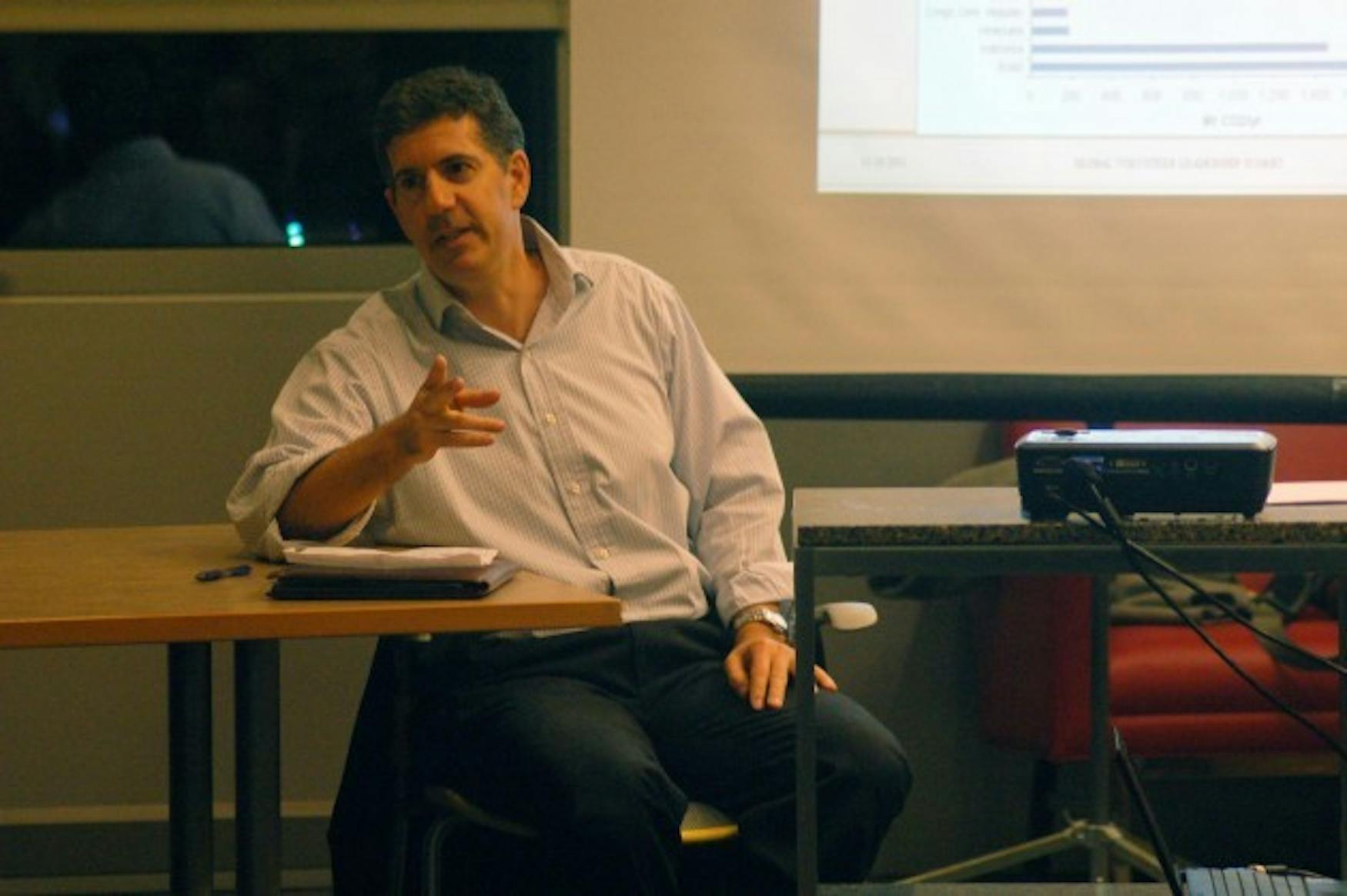IGS hosts discussion on unsustainable practices
The International and Global Studies Program hosted "Green Growth: Environmentally Smart Economic Development," a discussion that focused on how to change the supply and demand of environmentally unsustainable practices and the role of governments and organizations in this endeavor, last Wednesday.
The event featured Greg Fishbein, the managing director of forest carbon at the Nature Conservancy, and two students majoring in IGS, Stephanie Karol '12 and Ben Rifkin '12.
Fishbein discussed the environmental impact of deforestation and land use, primarily in Indonesia and Brazil. Karol and Rifkin discussed their experiences while abroad last semester; Karol's presentation centered on soy production in Argentina and Rifkin's focused on ecotourism in Madagascar.
The event was the second in the IGS Conversations series, the first of which centered on the global debt crisis and was held in October. Each discussion, Prof. Chandler Rosenberger (IGS) said in his introduction, provides a venue for study abroad returnees to discuss what they learned and bring in an expert in the field to react to the students' presentations and provide additional perspectives.
Fishbein started the conversation with a presentation on the timber trade and the role of land use in economic development. The growing population and a global increase in wealth, he said, have led to more urbanization and a "huge demand for natural resources," including timber and food, which have contributed to greater rates of deforestation.
"There are some fundamental issues as we grow and prosper," he said, including the difficulty of sustaining the environment in the midst of development.
Fishbein explained that these factors can be "reconciled" by using the land in "smarter" ways. For example, the Nature Conservancy is working with a district in Indonesia—which, with Brazil, contributes up to 50 percent of the 32 million acres of forests cut down each year—with a large timber and palm oil industry to find "a different pathway … to develop," Fishbein said. One of the Conservancy's main goals is to maintain jobs while decreasing deforestation. It aims to achieve this by enacting a more targeted rather than an "ad hoc" approach to deforestation; finding smarter extraction practices; and quantifying carbon emissions so that developers can see the results of the efforts.
Karol then discussed soy production in Argentina, explaining that once export taxes on agricultural goods were removed in the late 1980s, the Argentinian soy trade "exploded."
The number of farms producing soy decreased after the 2001 credit crisis, Karol continued, leading to concentrated wealth and fewer jobs. According to Karol, many areas currently being deforested are home to indigenous populations, and the individuals being displaced do not always have the language or job skills to successfully enter the general workforce.
Rifkin then presented information on biodiversity and natural resource management in relation to ecotourism in Madagascar. According to Rifkin, positive externalities of ecotourism include job creation, an incentive for the government and Malagasy citizens to protect the land, a way to attract foreign aid and donations and, in some cases, improve the country's living standards. Negative impacts of ecotourism, however, include inflation, particularly of basic commodities; pollution and degradation of the environment compounded by increased traffic to tourist sites; and black market trade, including sex trafficking and the sale of illegal hardwood, Rifkin said.
Rifkin offered steps that Madagascar can take to work to remedy these issues, including bringing back foreign investment, improving stability, creating better accessibility to attract families and other tourists and building better infrastructure.
A conversation-style question-and-answer session followed the presentations, during which audience member Prof. Eric Olson (Heller) addressed the focus on changing the supply of environmentally unsustainable products rather than the demand. Though changing demand "is hard," he said, "it would really be a terrible idea if we decided not to try." An important factor in this endeavor is education, he said.
In an interview with the Justice, Karol said that she hopes students gain an understanding that successful economic development is not based only on statistics and "the hard numbers."
Rifkin said in an interview with the Justice that the event was a "unique opportunity" for study abroad returnees to apply what they have learned to "issues that we study here at Brandeis."
In an interview with the Justice, Rosenberger said that the series aims to make IGS less "diffused of an experience." Two main goals of having a conversation-style series are to "hear differing views" and to "get the chance to recognize that people you disagree with may be of good will and that you may be able to cooperate with them," he said.
"We've been very lucky with great students and great speakers," he said.
According to Rosenberger, the IGS Conversations series will continue next spring.



Please note All comments are eligible for publication in The Justice.